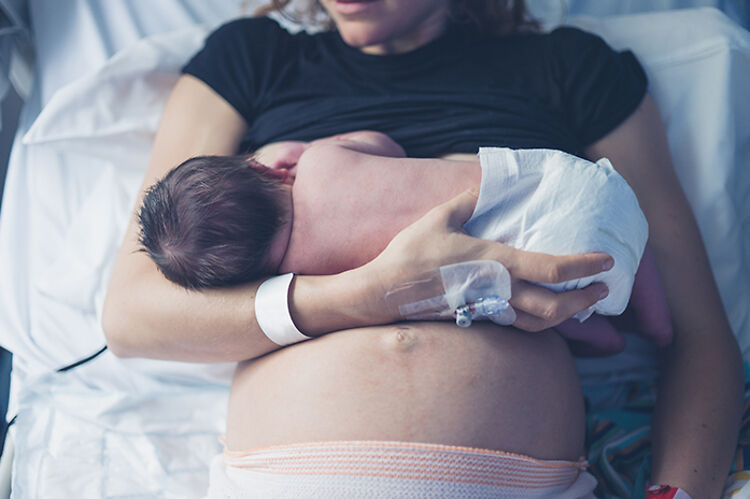The placenta comes from the Greek word ‘Plakous’ meaning ‘flat cake’ (which gives you an idea of what it looks like!) The placenta is an organ that develops in the uterus around three weeks into pregnancy. The umbilical cord connects the placenta to the baby, acting as a filter.
Nutrients, glucose and oxygen, are filtered into the baby’s system through the placenta. The food mum eats is also broken down by the placenta before being delivered to the baby’s system. In reverse, the placenta filters out waste products and carbon dioxide from the baby’s system back to the mum, who then passes it through urine.
The placenta is sometimes said to act as a kidney, as it filters out the ‘bad stuff, however, nicotine, alcohol, drugs and medicines will still make their way through to the baby’s system. As always, drugs and alcohol are to be avoided during pregnancy.
Mum and baby’s blood is kept separate by the placenta. Every minute, it is said that around a pint of blood, runs through the uterus and exchanges nutrients with the placenta – that’s a quick turn around and this can prevent infection.
The placenta produces all sorts of hormones. This includes oestrogen and progesterone, which prevent contractions from happening too early. Later in the term, the placenta will produce antibodies that can help protect the baby as they leave the womb and enter the world.
Passing the placenta is called the ‘third stage of labour’. If you are having a natural birth, it generally happens around 15-30 minutes after the baby has been born. This may occur naturally, or with a dose of oxytocin to encourage contractions. You will likely feel mild contractions, but you just gave birth to a little human, so you can do this! The placenta is usually around 1/6 of the baby’s weight.
Your doctor can let you know how your placenta is developing at your 12-week scan, and at your 20-week ultrasound. Sometimes the placenta can grow in the wrong position, which can complicate birth. Knowing this beforehand means your birthing team can take it into account during labour. Let your doctor know if you experience any unusual abdomen pain/trauma, vaginal bleeding or early contractions.
You may have heard of a rare practice of some parents choosing to cook and eat the placenta, or having it put into capsules. Although there is no Australian regulation around the production of placenta pills, consuming it could risk infection if not properly prepared so you should always consult with your doctor. Some parents like to plant the placenta under a tree, but you will need to talk to your doctor about whether it is safe to transport the placenta out of the hospital. We recommend your birth team handles the placenta.
The best thing about the placenta is that when you see it, you’re done! This is the last stage of labour, and if all went well, you can start recovering and start your new family.
Recommended Articles:
https://www.babybunting.com.au/baby-talk-blog/pregnancy-myths-vs-facts/
https://www.babybunting.com.au/baby-talk-blog/what-is-pre-eclampsia/



